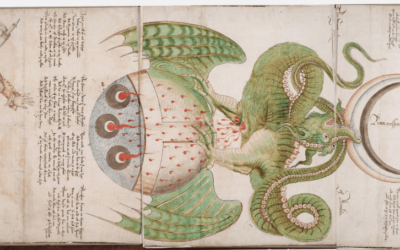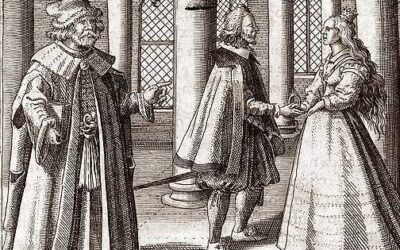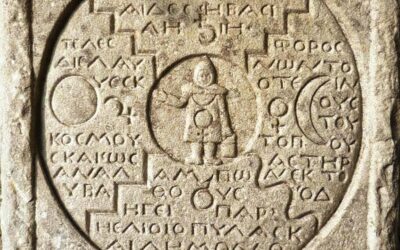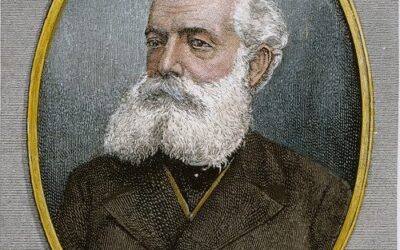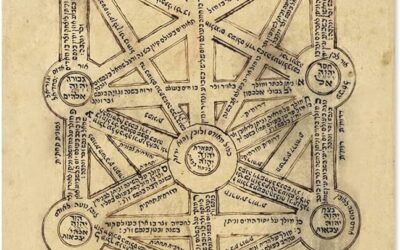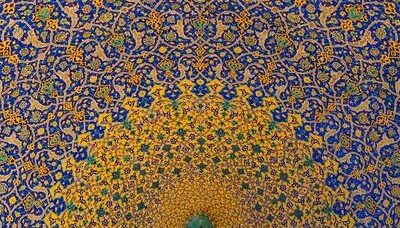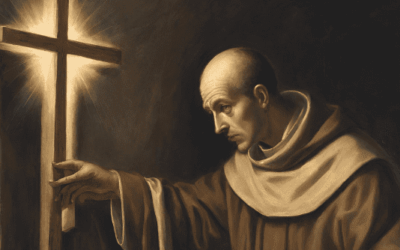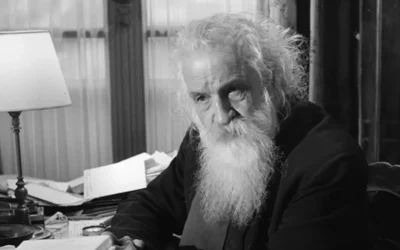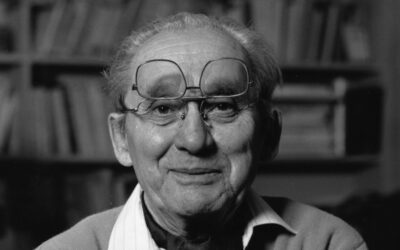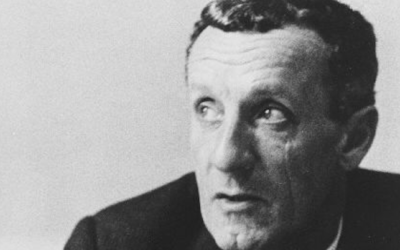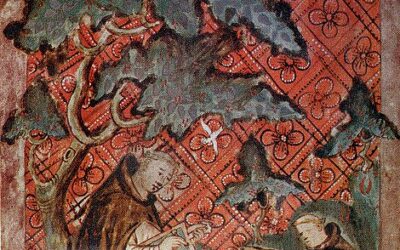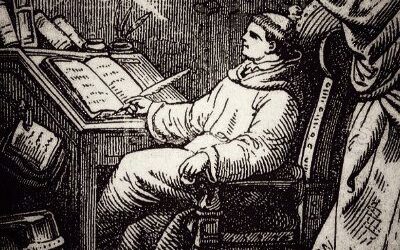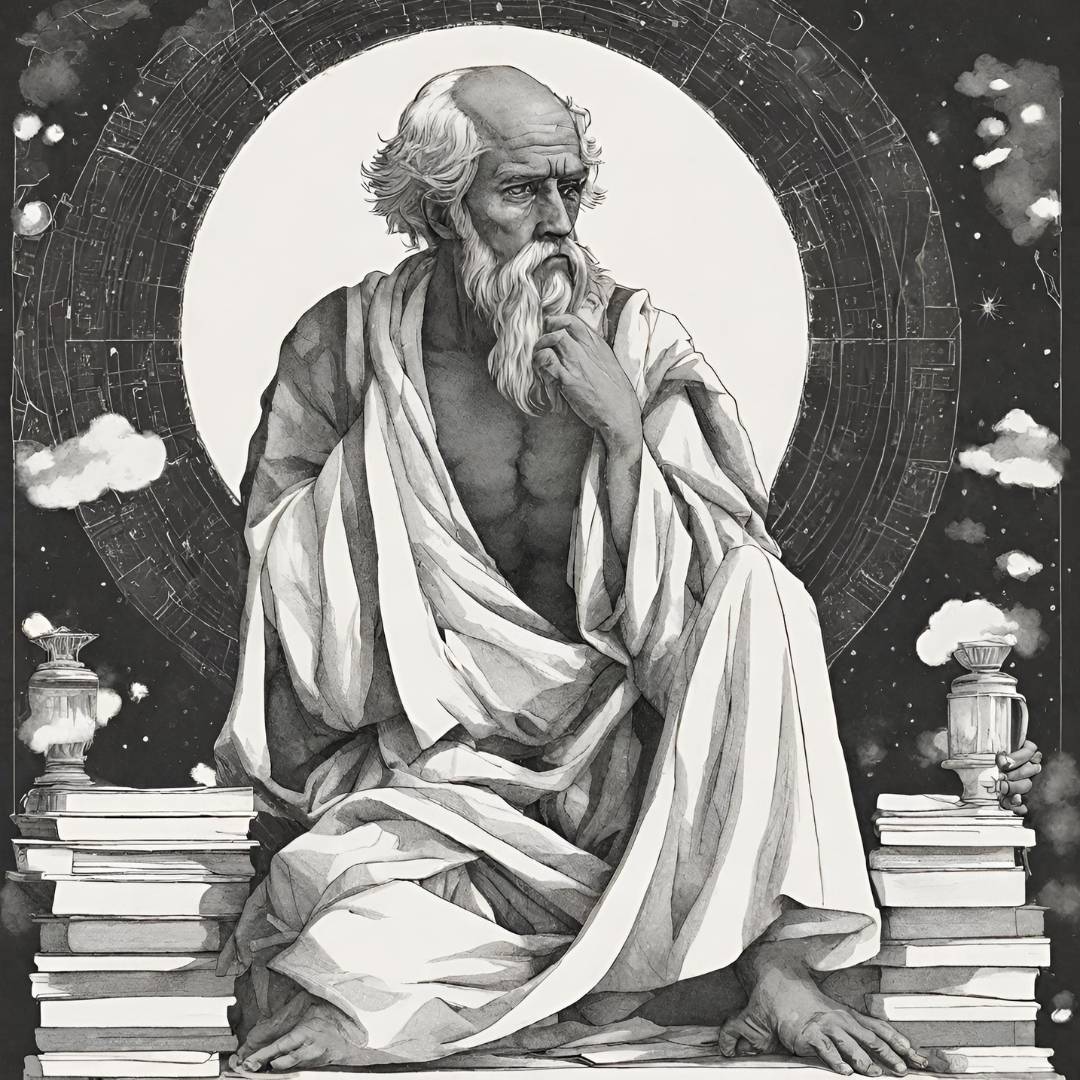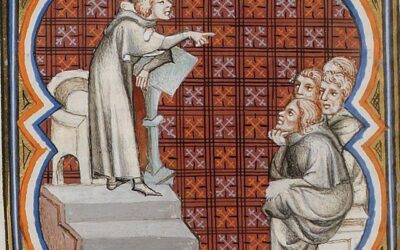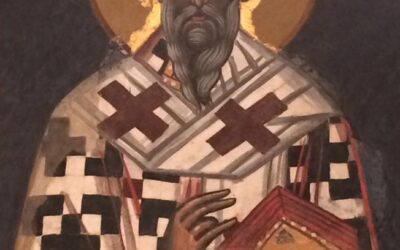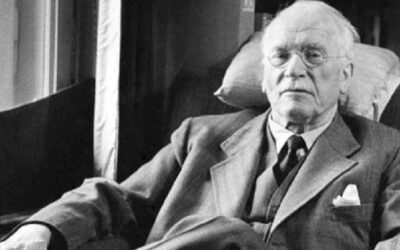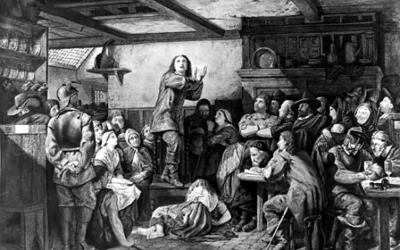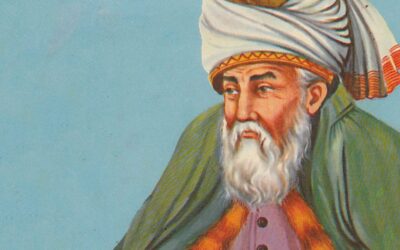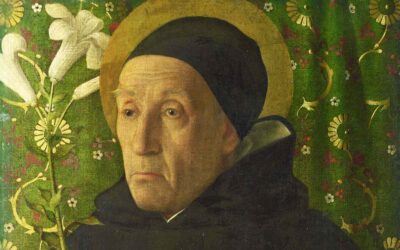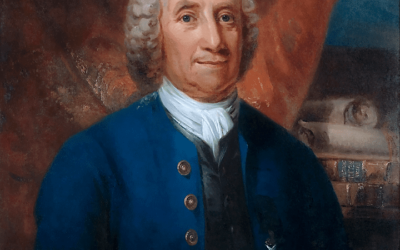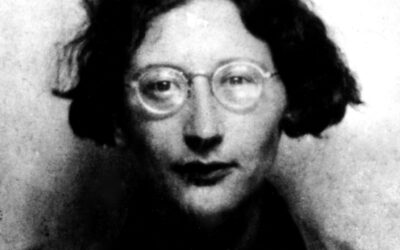Gnosticism as a Metaphor for Consciousness: Meaning, Evolution, and Healing Gnosticism is an ancient spiritual and philosophical worldview that offers a profound metaphor for the nature and dilemmas of human consciousness. While Gnosticism should not be taken as a literal philosophy or religion to adopt wholesale, it provides a powerful lens for exploring the ways we as conscious beings make meaning, how we evolved psychologically over time, and potential pathways for healing trauma by reconnecting with deeper...
Christian Mysticism: Sacred Psychology for Healing and Transformation
Integrating Contemplative Christian Wisdom with Modern Therapeutic Practice in Birmingham
Welcome to Taproot Therapy Collective’s exploration of how Christian mystical traditions offer profound psychological insights and healing practices that enhance contemporary therapeutic work. As Birmingham’s leading integrative therapy practice, we recognize that the contemplative Christian tradition provides rich resources for understanding human suffering, spiritual development, and psychological transformation that complement evidence-based mental health approaches.
Understanding Christian Mysticism in Therapeutic Context
Our Christian Mysticism blog category examines how the experiential wisdom of Christian contemplatives, from the Desert Fathers to contemporary teachers like Thomas Merton and Richard Rohr, offers valuable frameworks for therapeutic understanding and spiritual integration. These traditions provide sophisticated approaches to psychological healing that honor both faith commitments and therapeutic effectiveness.
This approach builds on the comprehensive treatment philosophy outlined on our main services page, where we emphasize personalized care that honors each individual’s spiritual orientation and cultural background. Christian mystical wisdom offers particular resources for clients seeking to integrate their faith with psychological healing while addressing spiritual struggles that may accompany mental health challenges.
Historical Christian Mystics and Psychological Insights
The Desert Fathers and Mothers established foundational approaches to spiritual psychology through their understanding of the human heart, emotional regulation, and spiritual warfare. Figures like Anthony of Egypt, Evagrius Ponticus, and Amma Syncletica developed sophisticated analyses of psychological states, emotional patterns, and spiritual practices that remarkably parallel contemporary understanding of anxiety, depression, and trauma responses.
Their concept of logismoi (troubling thoughts) provides frameworks for understanding obsessive thinking, negative thought patterns, and emotional dysregulation that inform cognitive-behavioral approaches while honoring spiritual dimensions of psychological distress. Their practices of hesychasm (inner stillness), contemplative prayer, and spiritual direction offer practical tools for emotional regulation and spiritual development.
Medieval Mystics and Depth Psychology contributed profound insights into psychological development and spiritual transformation through figures like Meister Eckhart, Julian of Norwich, and Hildegard of Bingen. Eckhart’s understanding of the soul’s relationship with the divine offers perspectives on identity, ego transcendence, and authentic selfhood that complement depth psychological approaches to individuation and personal growth.
Julian of Norwich’s “Revelations of Divine Love” provides remarkable insights into trauma recovery, divine compassion, and the integration of suffering that inform contemporary approaches to PTSD treatment and post-traumatic growth. Her understanding of God’s maternal love offers healing resources for individuals struggling with shame, self-worth, and attachment difficulties.
Spanish Mystics and Therapeutic Relationship through Teresa of Avila and John of the Cross offer sophisticated understanding of spiritual development, relationship dynamics, and the integration of difficult experiences. Teresa’s “Interior Castle” provides detailed mapping of consciousness development that parallels contemporary understanding of psychological growth and therapeutic process.
John of the Cross’s “Dark Night of the Soul” offers profound insights into depression, spiritual dryness, and the therapeutic value of difficult experiences that inform contemporary understanding of existential depression, spiritual emergency, and the integration of suffering as catalyst for growth. His work provides frameworks for understanding how psychological symptoms may reflect spiritual development needs.
Contemporary Christian Contemplatives and Therapeutic Integration
Thomas Merton and Psychological Integration bridges traditional monasticism with contemporary psychology through his exploration of contemplation, social justice, and psychological authenticity. Merton’s understanding of the false self and true self provides valuable frameworks for therapeutic work addressing identity, authenticity, and spiritual development that complement evidence-based approaches to depression and anxiety.
His integration of Eastern and Western contemplative practices offers models for interfaith dialogue and spiritual exploration that support therapeutic goals while honoring diverse spiritual interests. Merton’s social consciousness connects contemplative practice with engagement in community healing and social justice work.
Richard Rohr and Transformational Spirituality offers accessible integration of mystical wisdom with contemporary psychological understanding through his work on spiritual development, masculine spirituality, and contemplative practice. Rohr’s understanding of spiritual transformation provides frameworks for therapeutic work with life transitions, mid-life concerns, and spiritual integration.
Henri Nouwen and Pastoral Psychology contributes insights into spiritual direction, community healing, and the integration of psychological woundedness with spiritual calling. Nouwen’s work on the wounded healer archetype provides valuable perspectives for mental health professionals and individuals seeking to understand how personal struggles can become sources of compassion and healing for others.
Birmingham’s Christian Heritage and Therapeutic Applications
Living in Birmingham, Alabama, creates unique opportunities for integrating Christian mystical wisdom with local cultural and spiritual traditions. The city’s prominent role in the civil rights movement connects with mystical themes of prophetic witness, spiritual resistance, and contemplative action that inform therapeutic approaches to social trauma and community healing.
Birmingham’s strong Christian heritage, particularly evident in African American church traditions, provides cultural context for exploring how Christian mystical practices support resilience, community healing, and spiritual empowerment in the face of historical trauma and systemic oppression. Gospel music traditions, call-and-response worship patterns, and testimonial practices offer cultural frameworks for healing that complement contemplative approaches.
The city’s diverse Christian communities including Protestant, Catholic, and Orthodox traditions create opportunities for exploring how different branches of Christianity approach mystical experience and psychological healing while maintaining theological authenticity and therapeutic effectiveness.
Practical Applications in Therapeutic Work
Contemplative Prayer and Emotional Regulation draws from Christian mystical traditions to offer practical tools for anxiety management, emotional balance, and spiritual development. Practices like lectio divina (sacred reading), centering prayer, and the Jesus Prayer provide accessible methods for developing mindfulness, emotional regulation, and spiritual connection that complement evidence-based therapeutic interventions.
Spiritual Direction and Therapeutic Process recognizes how Christian mystical traditions offer frameworks for understanding therapeutic relationship, spiritual guidance, and personal transformation that enhance professional therapy while honoring spiritual dimensions of healing. Understanding how spiritual direction complements psychotherapy supports integrated approaches to mental health and spiritual development.
Dark Night Experiences and Depression Treatment explores how John of the Cross’s understanding of spiritual dryness and psychological darkness provides frameworks for understanding depression, existential concerns, and spiritual emergency that inform therapeutic treatment while honoring spiritual dimensions of psychological distress. This work proves particularly valuable for individuals whose depression includes spiritual components or questions about meaning and purpose.
Contemplative Community and Social Healing examines how Christian mystical traditions emphasize community healing, social justice, and contemplative action that complement individual therapy while addressing systemic issues affecting mental health. Understanding how contemplative practices support social engagement enhances therapeutic effectiveness while honoring spiritual calls to community involvement and social change.
Integration with Evidence-Based Practice
Christian mystical wisdom integrates effectively with contemporary therapeutic modalities detailed in our psychology and research section. Mindfulness-based interventions find deep roots in Christian contemplative traditions, while cognitive-behavioral approaches benefit from understanding how Christian practices address thought patterns, emotional regulation, and behavioral change.
Trauma therapy gains depth through Christian mystical perspectives on suffering, redemption, and post-traumatic growth that provide spiritual frameworks for understanding how difficult experiences can catalyze psychological and spiritual development. Understanding how Christian traditions approach trauma and healing enhances therapeutic effectiveness while honoring faith-based coping strategies and spiritual resources.
Family therapy benefits from Christian mystical understanding of forgiveness, reconciliation, and community healing that provide frameworks for addressing relationship conflicts, family trauma, and intergenerational healing while respecting Christian values and spiritual commitments.
Research-Based Insights from Leading Institutions
Contemporary research from Yale University Divinity School, Duke University’s Center for Spirituality, Theology and Health, and University of Notre Dame’s Institute for Church Life explores how Christian contemplative practices support mental health, social connection, and psychological resilience.
Studies consistently demonstrate that Christian spiritual practices including prayer, contemplation, and religious community involvement correlate with improved mental health outcomes, faster recovery from depression and anxiety, stronger social support networks, and greater resilience in facing life challenges. Research from Baylor University’s Institute for Studies of Religion provides evidence-based support for integrating Christian spiritual practices with mental health treatment.
Neuroscience research on Christian contemplative practices reveals how prayer, meditation, and contemplative reading activate neural networks associated with emotional regulation, social connection, and cognitive flexibility, providing biological validation for therapeutic integration of Christian mystical practices.
Connect with Our Christian Mysticism Community
For deeper exploration of how Christian mystical traditions inform therapeutic practice, check out more on the Discover + Heal + Grow Taproot Therapy Collective blog and podcast where we regularly feature conversations with contemplative practitioners, spiritual directors, and therapists specializing in faith integration and Christian approaches to mental health.
Subscribe to our YouTube channel for discussions on Christian contemplation and psychological healing, listen to our podcast for interviews with Christian mystics and contemplative practitioners, follow us on Instagram for daily wisdom from Christian mystical traditions, connect on LinkedIn for professional resources on faith and mental health, find us on Google Maps for Christian-integrated therapy and spiritual direction services, and join our Reddit community for respectful discussions on Christian mysticism, contemplative practice, and psychological healing.
Featured Article Categories
Our Christian Mysticism blog includes Desert Tradition Psychology exploring early Christian insights into emotional regulation and spiritual development, Medieval Mystics and Depth Psychology examining contemplative contributions to psychological understanding, Contemporary Contemplatives investigating modern applications of Christian mystical wisdom, Contemplative Practices providing practical tools for spiritual and psychological development, Dark Night Experiences addressing spiritual dryness and psychological struggle, Social Mysticism exploring community healing and justice work, Faith Integration examining how Christian beliefs enhance therapeutic outcomes, and Research and Science covering studies on Christian contemplative practices and mental health.
Specialized Christian Contemplative Programs
We offer quarterly Christian Contemplative Retreats combining therapeutic work with contemplative prayer and spiritual direction, monthly Lectio Divina Groups for sacred reading and psychological reflection, specialized Faith-Integrated Therapy for Christians seeking to combine psychological healing with spiritual growth, and Contemplative Spiritual Direction for individuals wanting to explore Christian mystical traditions within therapeutic relationships.
Start Your Contemplative Healing Journey Today
The rich tradition of Christian mysticism offers profound resources for understanding human nature, suffering, and transformation that enhance contemporary therapeutic practice while honoring faith commitments and spiritual development. Our Birmingham-based team at Taproot Therapy Collective integrates Christian contemplative wisdom with evidence-based mental health treatment for comprehensive healing that addresses psychological, spiritual, and communal dimensions of wellbeing.
Contact Taproot Therapy Collective: 📍 2025 Shady Crest Dr. Suite 203, Hoover, AL 35216
📞 (205) 598-6471
🌐 www.GetTherapyBirmingham.com
🎧 Podcast: gettherapybirmingham.podbean.com
We provide faith-integrated therapy that honors Christian spiritual traditions while utilizing evidence-based psychological treatments for comprehensive healing that supports both mental health and spiritual development.
Discover + Heal + Grow with Taproot Therapy Collective – Birmingham’s sanctuary for Christian contemplative healing and faith-integrated therapeutic practice.
The Mystical Roots and Therapeutic Fruits of Initiation Rites
Anthropology and Evolutionary Psychology for Therapy, Christian Mysticism in Therapy, Comparative Religion for Therapy, Jungian Therapy and Depth Psychology, Ritual and Initiation, Spirituality and The Transcendent Function in Psychotherapy
Is Psychotherapy a Type of Initiation Have you ever been part of a fraternity, sorority, or similar organization? If so, you may have experienced rituals or ceremonies that felt both challenging and transformative. Even if you haven't, you've likely encountered such rites of passage in religious services, coming-of-age celebrations, or weddings. These experiences tap into a deep human need for initiation—a symbolic death and rebirth that ushers us into a new stage of life. We see this theme in modern day rituals...
The Perennial Philosophy and Depth Psychology: Uncovering Universal Patterns of Wisdom and Healing
Christian Mysticism in Therapy, Color Psychology, Jungian Therapy and Depth Psychology
Throughout history, mystics, philosophers, and wisdom traditions from around the world have independently arrived at strikingly similar insights into the nature of the human psyche, the path to healing and wholeness, and the fundamental structure of reality. These recurring patterns and themes, often referred to as the perennial philosophy, point to a universal substratum of human experience that transcends cultural and historical boundaries. In the 20th century, the pioneering work of depth psychologists such as...
The Hero’s Journey from Gilgamesh to Greek Tragedy:
Christian Mysticism in Therapy, Executive and Physician Burnout, Jungian Therapy and Depth Psychology, Mythology and Therapy
Evolving Mythologies and Depth Psychology The hero's journey is one of the most enduring archetypes in world mythology, a narrative pattern that has shaped stories across cultures and centuries. At its core, the hero's journey is a psychological one—a symbolic representation of the process of individuation, the development of the self through the integration of conscious and unconscious elements. By tracing this archetype through the evolution of ancient mythology, particularly in the Greek tradition, we can gain...
The Blindspot: What We Cannot See in Ourselves and Society
Christian Mysticism in Therapy, History of Psychotherapy, Psychology
What are our psychological blindspots in mass and individual psychology? "Maybe the only thing each of us can see is our own shadow. We are all like the blind man in the dark room looking for the black cat that isn't there." - The Great Dictator, Charlie Chaplin The Lacuna There is a small region devoid of photoreceptors called the physiological blindspot or lacuna. Located where the optic nerve passes through the retina, this area literally cannot detect light. And yet, we don't perceive a black void in our...
The Holistic Theology and Alchemy of Arnaldus de Villanova
Christian Mysticism in Therapy, Depth Psychology Approaches and Techniques, Phenomenology and Existential Psychology, Psychology of Mystics, Gurus, and Spiritual Philosophers, Psychotherapy Biographies: Historical Figures in the History of Psychology
1. Who was Arnaldus de Villanova? Arnaldus de Villanova (c.1240-1311) was a renowned Catalan physician, theologian, diplomat and alchemist who made significant contributions to the development of medicine and spirituality in medieval Europe. An influential figure in the courts of kings and popes, Arnaldus pioneered a holistic approach to health and healing that synthesized insights from Hippocratic-Galenic medicine, Christian theology, Kabbalah, hermeticism and alchemy. At the heart of his thought was a...
Dissecting the Symbolism in Carl Jung’s Bollingen Stone
Christian Mysticism in Therapy, Depth Psychology Approaches and Techniques, Jungian Therapy and Depth Psychology
In the garden of his Bollingen Tower retreat, on the shore of Lake Zurich, stands a peculiar monument - a stone cube, some twenty inches thick, carved on three sides with cryptic inscriptions. This is the Bollingen Stone, erected by Carl Jung in 1950 to commemorate his 75th birthday. Far from a mere ornamental marker, however, the Stone represents a profound expression of Jung's psychological and philosophical worldview. Through its amalgam of symbols, quotations, and structural motifs, it encapsulates the core...
Friedrich August Kekulé and the Role of Intuition in the Discovery of the Benzene Ring
Christian Mysticism in Therapy, Psychology of Mystics, Gurus, and Spiritual Philosophers, Symbolism and Meaning in Psychotherapy
Who was Kekulé? Friedrich August Kekulé (1829-1896) was a German organic chemist who made several groundbreaking discoveries, most famously the cyclic structure of benzene. Kekulé's insight into the benzene ring was a pivotal moment in the history of chemistry that revolutionized the field. Interestingly, Kekulé attributed this discovery to a moment of intuition and visual inspiration that came to him in a dream. Kekulé's Dream and the Benzene Ring Structure The story of Kekulé's benzene ring discovery has become...
The Kabbalistic Concept of Ein Sof
Christian Mysticism in Therapy, Depth Psychology Approaches and Techniques, Phenomenology and Existential Psychology, Psychology of Mystics, Gurus, and Spiritual Philosophers
The Depth Psychology o Kabbalistic Concept of Ein Sof What is Kabbalah? Kabbalah is a mystical tradition within Judaism that seeks to understand the nature of divinity, the structure of the universe, and the purpose of human existence. The term "Kabbalah" comes from the Hebrew root "k-b-l," which means "to receive" or "to accept," referring to the reception of divine wisdom and the acceptance of spiritual practices. Kabbalah emerged in 12th century Provence and Spain, drawing on earlier forms of Jewish mysticism...
The Philosophy Behind and Around Carl Jung
Christian Mysticism in Therapy, Depth Psychology Approaches and Techniques, History of Psychotherapy, Phenomenology and Existential Psychology, Psychology of Mystics, Gurus, and Spiritual Philosophers, Psychotherapy Biographies: Historical Figures in the History of Psychology, Symbolism and Meaning in Psychotherapy
What were Carl Jung's Major Influences? Carl Jung was profoundly influenced by a wide range of philosophers, thinkers and mystics in developing his groundbreaking theories of analytical psychology. He drew upon ideas from existentialism, phenomenology, German idealism, Neoplatonism, Hermeticism, Gnosticism, and Christian mysticism to formulate his conceptions of the collective unconscious, archetypes, individuation, and the Self. Let's examine in-depth how some of these key figures shaped Jung's thought. Philemon...
The Influence of Christian Mystics on Jungian Thought:
Christian Mysticism in Therapy, Depth Psychology Approaches and Techniques, Phenomenology and Existential Psychology, Psychology of Mystics, Gurus, and Spiritual Philosophers
What is Christian Mysticism? Mysticism is a spiritual discipline and a way of life that seeks direct experience and union with the divine or ultimate reality. It is a phenomenon that has manifested across various religious traditions, including Christianity, Islam, Judaism, Buddhism, and Hinduism. Mystics believe that it is possible to have a profound, transformative encounter with the sacred that transcends intellectual understanding and rational thought. At the core of mysticism lies the idea that the divine is...
St. John of the Cross: Mystical Wisdom for Modern Psychology
Christian Mysticism in Therapy, Phenomenology and Existential Psychology, Psychology of Mystics, Gurus, and Spiritual Philosophers, Spirituality and The Transcendent Function in Psychotherapy
Who was St. John of the Cross? "In the evening of life, we will be judged on love alone." - St. John of the Cross In the crucible of 16th century Catholic reform, one man's profound mystical insights illuminated the path of spiritual transformation in a way that continues to resonate with seekers across traditions and modern psychologists alike. St. John of the Cross (1542-1591), the renowned Spanish mystic, Carmelite friar, and Doctor of the Church, gifted humanity with a corpus of writings that map the soul's...
Gaston Bacheard: Psychology Through Poetics
Christian Mysticism in Therapy, Phenomenology and Existential Psychology, Psychology of Mystics, Gurus, and Spiritual Philosophers
Who was Bachelard? Gaston Bachelard (1884-1962) was a French philosopher and literary critic who made significant contributions to the fields of poetics, the philosophy of science, and the analysis of the imagination. His work explored the ways in which the human psyche engages with and constructs meaning from the world, with a particular focus on the role of imagination, reverie, and poetic language. Bachelard's interdisciplinary approach and his emphasis on the creative and transformative power of the...
Paul Ricoeur: A Philosopher of Language, Narrative Identity and Hermeneutics
Christian Mysticism in Therapy, Phenomenology and Existential Psychology, Psychology of Buildings and Architecture, Psychology of Modernism Post Modernism and the Meta Modern, Psychology of Mystics, Gurus, and Spiritual Philosophers, Psychotherapy Biographies: Historical Figures in the History of Psychology
Who was Paul Ricouer? Paul Ricoeur (1913-2005) was one of the most influential French philosophers of the 20th century. His wide-ranging work made major contributions to the fields of phenomenology, hermeneutics, existentialism, theology and literary theory. Ricoeur is known for his analysis of language and narrative as fundamental to human understanding and identity. His insights reshaped debates around interpretation theory, selfhood, memory, history and ethics. This comprehensive essay explores Ricoeur's key...
Maurice Merleau-Ponty: Embodied Perception and Existential Phenomenology
Christian Mysticism in Therapy, Jungian Therapy and Depth Psychology, Metamodernism and Deconstruction, Phenomenology and Existential Psychology, Psychology of Buildings and Architecture, Psychology of Modernism Post Modernism and the Meta Modern, Psychology of Mystics, Gurus, and Spiritual Philosophers, Psychotherapy Biographies: Historical Figures in the History of Psychology, Trauma Treatment in Alabama, Trauma, Depth Psychology, and Social Work
Who was Maurice Merleau-Ponty? Maurice Merleau-Ponty (1908-1961) was a French philosopher and phenomenologist who made significant contributions to the fields of phenomenology, existentialism, and the philosophy of perception. His work bridged the gap between continental philosophy and the emerging fields of cognitive science and psychology, influencing subsequent thinkers in philosophy, psychology, and the social sciences. Merleau-Ponty's theories on embodied cognition, the lived body, and the primacy of...
Jan van Ruusbroec: Flemish Mystic and His Resonance with Depth Psychology
Christian Mysticism in Therapy, Phenomenology and Existential Psychology, Psychology of Buildings and Architecture
Who was Jan van Ruusbroec? Jan van Ruusbroec (1293-1381) was a Flemish mystic, contemplative writer, and one of the most influential spiritual figures of the Middle Ages. His profound insights into the nature of the Divine, the human soul, and the mystical path to union with God have had a lasting impact on Christian spirituality and, in more recent times, on the development of depth psychology and psychotherapy. This essay will explore Ruusbroec's life, his major works and key ideas, and how his mystical...
Johannes Tauler’s Mystical Theology
Christian Mysticism in Therapy, Phenomenology and Existential Psychology, Psychology of Mystics, Gurus, and Spiritual Philosophers, Psychotherapy Biographies: Historical Figures in the History of Psychology
Who was Johannes Tauler? Johannes Tauler (c. 1300-1361) was a German Dominican friar, theologian and one of the most influential Christian mystics of the 14th century. As a prominent figure in the medieval Rhineland mystic tradition, Tauler's sermons and spiritual teachings emphasized the soul's inner journey towards God, the importance of detachment from worldly desires, and the transformative power of surrendering to divine grace. Tauler's mystical insights not only had a profound impact on Christian...
The Mystical Philosophy of John Scottus Eriugena:
Christian Mysticism in Therapy, Depth Psychology Approaches and Techniques
Neoplatonism, Depth Psychology, and the Transformation of Trauma Meta Discover the profound insights of John Scottus Eriugena, the 9th century Irish philosopher, and explore how his ideas about the fourfold nature, theosis, and the divine within can inform depth psychology, psychotherapy, and our understanding of trauma and its healing. Learn how Eriugena's mystical philosophy resonates with the work of Carl Jung and other pioneering thinkers in the field of psychology. John Scottus Eriugena, a 9th century Irish...
Amalric of Bena and His Insights in Depth Psychology
Christian Mysticism in Therapy, Depth Psychology Approaches and Techniques, Psychology of Mystics, Gurus, and Spiritual Philosophers
Who was Amalric of Bena ? Amalric of Bena, a medieval French theologian and philosopher who lived in the late 12th and early 13th centuries, developed a unique and influential system of mystical theology that has had significant resonance with modern depth psychology, particularly the theories of Carl Jung and his followers. Amalric's ideas about the nature of God, the structure of the soul, and the path to spiritual transformation offer profound insights relevant to psychotherapy and the conceptualization of...
Pseudo-Dionysius the Areopagite and the Mystical
Christian Mysticism in Therapy, Jungian Therapy and Depth Psychology, Psychology of Mystics, Gurus, and Spiritual Philosophers, Psychotherapy Biographies: Historical Figures in the History of Psychology
Who was Pseudo-Dionysius? Pseudo-Dionysius the Areopagite, a mysterious figure who wrote under the pseudonym of Dionysius the Areopagite, a convert of St. Paul mentioned in Acts 17:34, is one of the most influential Christian mystics and theologians. His writings, which blend Neoplatonic philosophy with Christian theology, have had a profound impact on the development of Western spirituality, mysticism, and even modern depth psychology. This essay will explore the key ideas in Pseudo-Dionysius' thought, their...
How to Understand Carl Jungian Phenomenology: Empiricism, Mysticism, or Literalism
Christian Mysticism in Therapy, Depth Psychology Approaches and Techniques, Jungian Therapy and Depth Psychology, Phenomenology and Existential Psychology
Read Part 1, Part 2, Part 3 and Part 4 Read More on Jung here: Carl Jung's Major Influences Jungian Analysis Archetypes Jung’s Method Jungian Thought Part 1: What was Jung's Method to Discover Reality? Jung's Empirical Phenomenology: Uniting Subjective Spirituality and Objective Science At the heart of Carl Jung's approach to psychology was a unique synthesis of empiricism and phenomenology, which sought to bridge the seemingly disparate realms of subjective spirituality and objective science. This approach...
George Fox and the Quaker Path to Integration and Wholeness
Alternative Medicine and Holistic Health, Christian Mysticism in Therapy, Psychology of Mystics, Gurus, and Spiritual Philosophers, Spirituality and The Transcendent Function in Psychotherapy
Who was George Fox? George Fox (1624-1691), the founder of the Religious Society of Friends (Quakers), developed a form of Christian spirituality that continues to offer valuable insights for contemporary psychology and spiritual practices. This article explores Fox's key teachings and their relevance to modern well-being and personal growth. Key Concepts in Fox's Teachings 1. The Inner Light Central to Fox's philosophy Belief in direct, unmediated experience of God within every individual Challenges...
The “Interior Castle” and Ascent of St. Teresa of Avila
Christian Mysticism in Therapy, Depth Psychology Approaches and Techniques, Phenomenology and Existential Psychology, Psychology of Mystics, Gurus, and Spiritual Philosophers, Psychotherapy Biographies: Historical Figures in the History of Psychology
Who was Teresa of Avila? "Christ has no body now but yours, no hands but yours..." - St. Teresa of Avila Introduction: In the heated crucible of the 16th century Catholic Reformation, one woman's spiritual genius illuminated the path of mystical devotion in a way that revolutionized the soul's inward journey to divine union. St. Teresa of Avila (1515-1582), the celebrated Spanish mystic, monastic reformer, and founder of the Discalced Carmelites, bequeathed to humanity a series of timeless writings detailing her...
Rumi’s Mystical Poetry and Its Resonance with Jungian Psychology
Christian Mysticism in Therapy, Depth Psychology Approaches and Techniques, Phenomenology and Existential Psychology
Who was Rumi? “Your task is not to seek for love, but merely to seek and find all the barriers within yourself that you have built against it.” ― Rumi Jalal ad-Din Muhammad Rumi, more popularly known as Rumi, was a 13th-century Persian poet, Sufi mystic, and Islamic scholar whose profound spiritual teachings and evocative poetry have transcended time and cultural boundaries. His works, which explore themes of love, unity, and the search for the divine, have not only influenced Islamic thought but have also found...
Meister Eckhart, the Unconscious, and the Ego: A Metaphor for the Church’s Relationship with Mysticism
Christian Mysticism in Therapy, Psychology of Mystics, Gurus, and Spiritual Philosophers
“If I had a friend and loved him because of the benefits which this brought me and because of getting my own way, then it would not be my friend that I loved but myself. I should love my friend on account of his own goodness and virtues and account of all that he is in himself. Only if I love my friend in this way do I love him properly.” ― Meister Eckhart, Selected Writings The relationship between the medieval mystic Meister Eckhart and the Catholic Church can be seen as a powerful metaphor for the relationship...
Emanuel Swedenborg’s Mystical Visions and Their Influence on Carl Jung’s Psychology
Christian Mysticism in Therapy, Phenomenology and Existential Psychology, Philosophy for Therapists, Psychology of Mystics, Gurus, and Spiritual Philosophers, Psychotherapy Biographies: Historical Figures in the History of Psychology, Spirituality and The Transcendent Function in Psychotherapy
Who was Emanuel Swedenborg? Emanuel Swedenborg, a Swedish philosopher, scientist, and mystic who lived from 1688 to 1772, had a profound impact on the development of Western spirituality and psychology. His visionary experiences and ideas about the nature of the spiritual world and its relationship to the material realm influenced many thinkers, including the renowned Swiss psychiatrist Carl Jung. “Kindness is an inner desire that makes us want to do good things even if we do not get anything in return. It is the...
Simone Weil: Mysticism, Suffering, and the Search for Meaning
Christian Mysticism in Therapy, Phenomenology and Existential Psychology
Who was Simone Weil? Simone Weil, the French philosopher, mystic, and political activist, left an indelible mark on 20th-century thought through her profound and often paradoxical reflections on the human condition. Born in 1909 to a wealthy Jewish family in Paris, Weil was a precocious child who excelled academically and developed a deep concern for social justice at an early age. Despite her privileged background, she chose to live a life of voluntary poverty and solidarity with the oppressed, working in...




